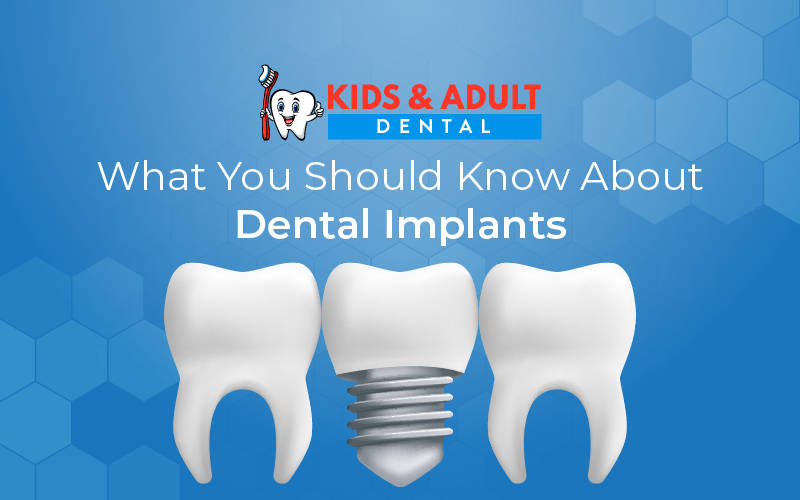Dental implants have become a popular and effective solution for restoring missing teeth and improving oral health. However, like any medical procedure, it’s essential to be aware of potential complications that may arise during the dental implant journey.
Embracing these possibilities as part of the process can help patients make informed decisions and manage expectations for a successful outcome.
What are Dental Implants?
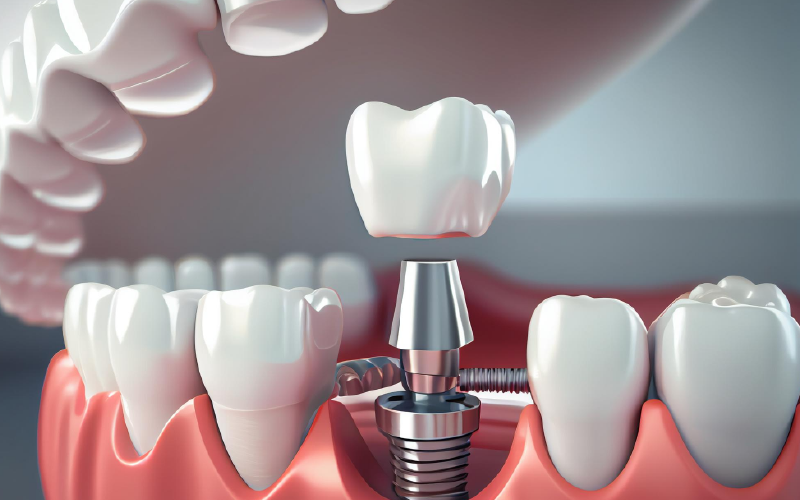
Dental implants are artificial tooth roots made from biocompatible materials, typically titanium. They are surgically inserted into the jawbone to provide a sturdy foundation for replacement teeth or dental crowns.
These implants offer a natural look, feel, and function, making them a preferred choice for many individuals seeking a long-term tooth replacement solution.
Types of Dental Implants
1. Endosteal Implants
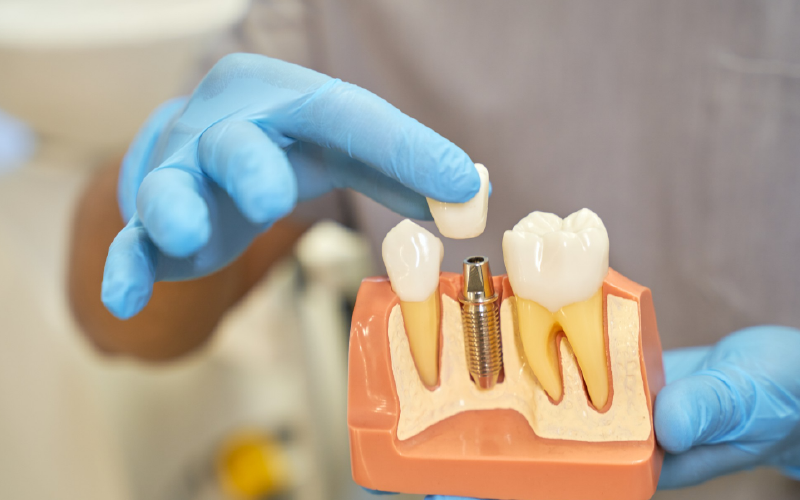
The most common type of dental implant is these ones. They are implanted directly into the jawbone during surgery. Once the gum tissue has healed around the implant, a second surgery is performed to connect a post (abutment) to the implant.
Finally, the artificial tooth or dental crown is attached to the abutment. Endosteal implants are versatile and can support single teeth, bridges, or even dentures.
2. Subperiosteal Implants
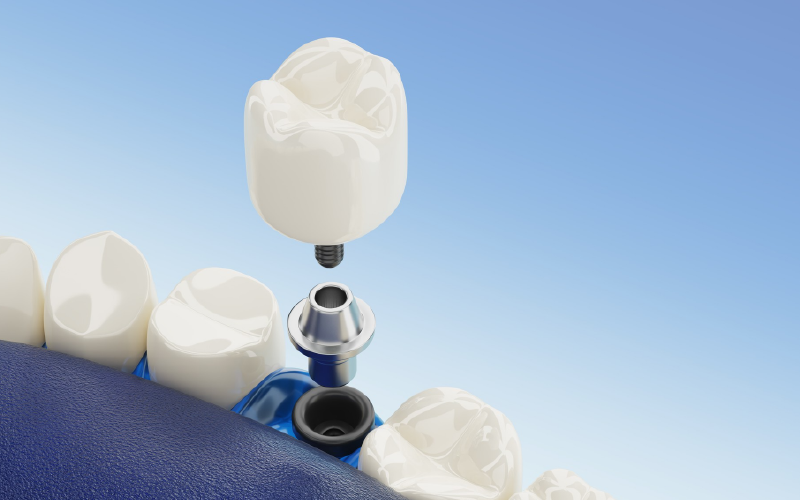
This kind of implant is used when the jawbone is too weak to sustain traditional endosteal implants. Subperiosteal implants are positioned on or above the jawbone but beneath the gum tissue as opposed to being inserted directly into the jawbone.
A metal framework is placed on the jawbone, and posts protrude through the gum to support the artificial teeth. Subperiosteal implants are less common and are typically used in cases where bone grafting is not an option.
Read Also: Red Flags of Root Canal Trouble
Understanding Dental Implant Terminology
Understanding the terminology related to dental implants is essential for patients to make informed decisions and communicate effectively with their dental care providers.
These implants serve as a sturdy foundation for various dental restorations like crowns, bridges, or dentures, offering a natural-looking and functional replacement for missing teeth.Here are some key terms related to dental implants:
1. Osseointegration
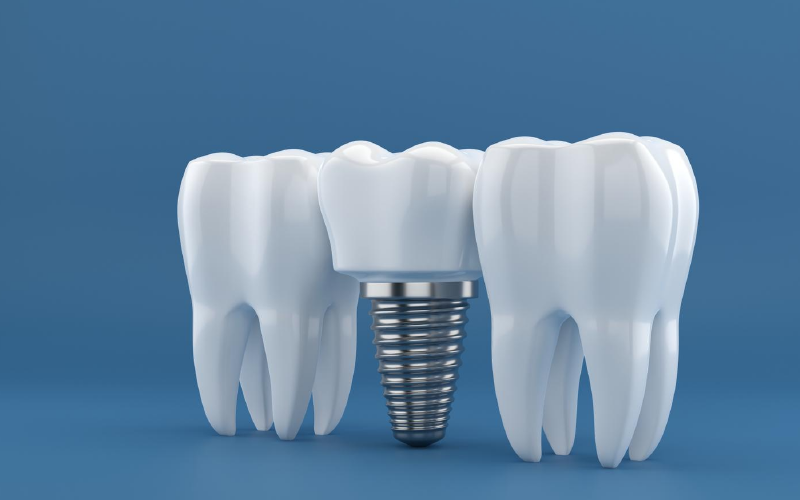
This is a critical process where the dental implant fuses with the surrounding jawbone. It’s a gradual tooth bonding over time, which results in a strong and stable connection between the implant and the bone.
2. Abutment
Once osseointegration is complete, an abutment is attached to the dental implant. The abutment acts as a connector that extends above the gum line and provides a platform for securing the final dental restoration.
3. Crown
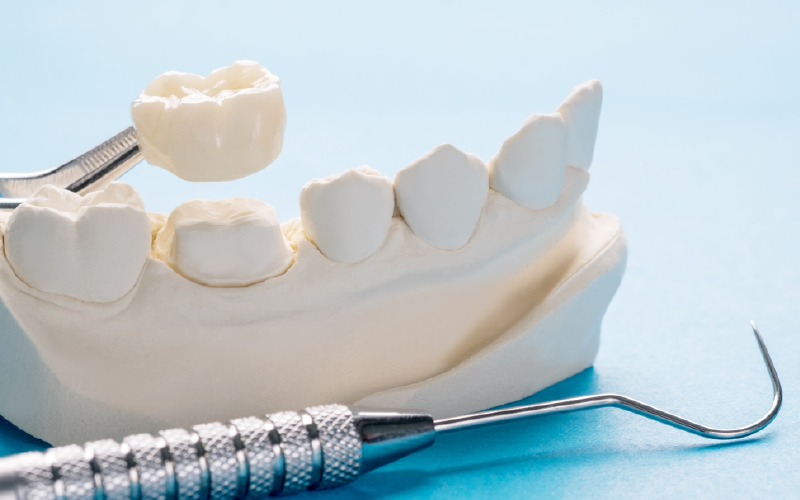
The crown is a custom-made artificial tooth that fits over the abutment. It looks and functions like a natural tooth, completing the dental implant and providing a seamless appearance.
4. Bridge
Dental bridges are used when there are one or more missing teeth. They consist of one or more artificial teeth supported by dental implants or adjacent natural teeth.
5. Denture
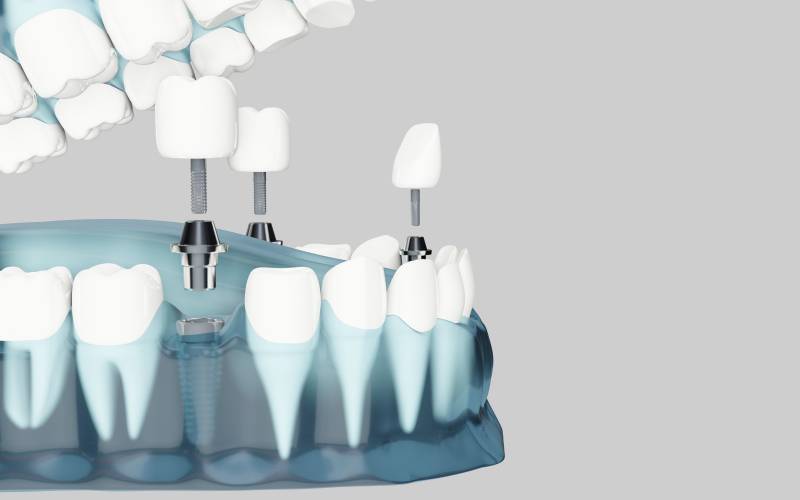
Dentures are removable dental prostheses used to replace multiple missing teeth. They can rest on the gums and/or be anchored onto dental implants for stability.
6. Periodontist
This is a dental specialist who focuses on the prevention, diagnosis, and treatment of gum diseases. Periodontists also have expertise in dental implant placement.
7. Prosthodontist
Prosthodontists are dental specialists who specialize in the restoration and replacement of missing teeth, including dental implant restorations.
8. Endosteal Implant

The endosteal implant, which is put into the jawbone directly, is the most typical kind of dental implant.
9. Subperiosteal Implant
This type of dental implant is placed under the gum but above the jawbone. It is used when there is insufficient bone height or volume for traditional implants.
10. Bone Grafting

This procedure involves augmenting the volume or density of the jawbone using bone graft materials. It helps create a suitable environment for successful implant placement when there is inadequate bone structure.
Read Also: The Benefits of Professional Teeth Whitening
Complications and Risks
- Infection at the implant site
- Implant failure
- Nerve or tissue damage
- Sinus issues (for upper jaw implants)
- Gum recession
- Bone loss (peri-implantitis)
- Rare allergic reactions
- Healing complications
- Bite problems
- Long-term maintenance requirements
Average Cost of Dental Implants
During the healing phase, patients may be advised to stick to a soft diet and avoid putting excessive pressure on the implant area.
As the implant integrates with the jawbone and heals, the patient’s dentist or prosthodontist will fabricate and place the artificial tooth or dental crown on top of the implant.
The average cost of dental implants can vary based on several factors, including the location, the dentist’s experience, the number of implants needed, any additional procedures required (such as bone grafting or sinus lift), and the type of dental insurance coverage, if applicable.
In the US, the average price of a single dental implant can range from $1,000 to $3,000.
Keep in mind that this cost typically covers the implant itself, the abutment, and the crown that will be placed on top of the implant to create a natural-looking tooth. If additional procedures are necessary, such as bone grafting or tooth extractions, the total cost may increase.
Read Also: Tips to Prevent Dry Socket After Tooth Extraction
How Long Does the Recovery Process Take After a Dental Implant Procedure? Factors That Affect Healing
The recovery process after a dental implant procedure varies from 2 to 6 weeks for initial healing and 3 to 6 months for full recovery and integration.
Factors affecting healing include bone quality, implant location, patient health, surgical technique, post-operative care, and complications. Following instructions, maintaining oral hygiene, and attending follow-up appointments are crucial for successful healing.
FAQs
-
Is the Dental Implant Procedure Painful?
Ans: The dental implant procedure is typically performed under local anesthesia, ensuring that the patient experiences little to no pain during the surgery. Some discomfort or mild pain may be experienced during the healing period, but it can be managed with prescribed medications and proper care.
-
What are the Alternatives to Dental Implants?
Ans: Depending on your situation, alternatives may include bridges, dentures, or other restorative dental treatments. Your dentist will discuss the most suitable options for your specific needs.
The Bottom Line
When considering dental implants, it is crucial for individuals to be well-informed about the terms and potential complications associated with the procedure. Making an informed decision requires understanding the benefits and risks involved.
By conducting thorough research and consulting with experienced dental professionals, patients can gain valuable insights into the best affordable dental services available.
Selecting the dental clinic denver, colorado is crucial, especially one that caters to both kids and adults. Opting for reliable kids and adult dental care service providers guarantees that the unique requirements of all age groups will be met and treatments will be customized accordingly.

